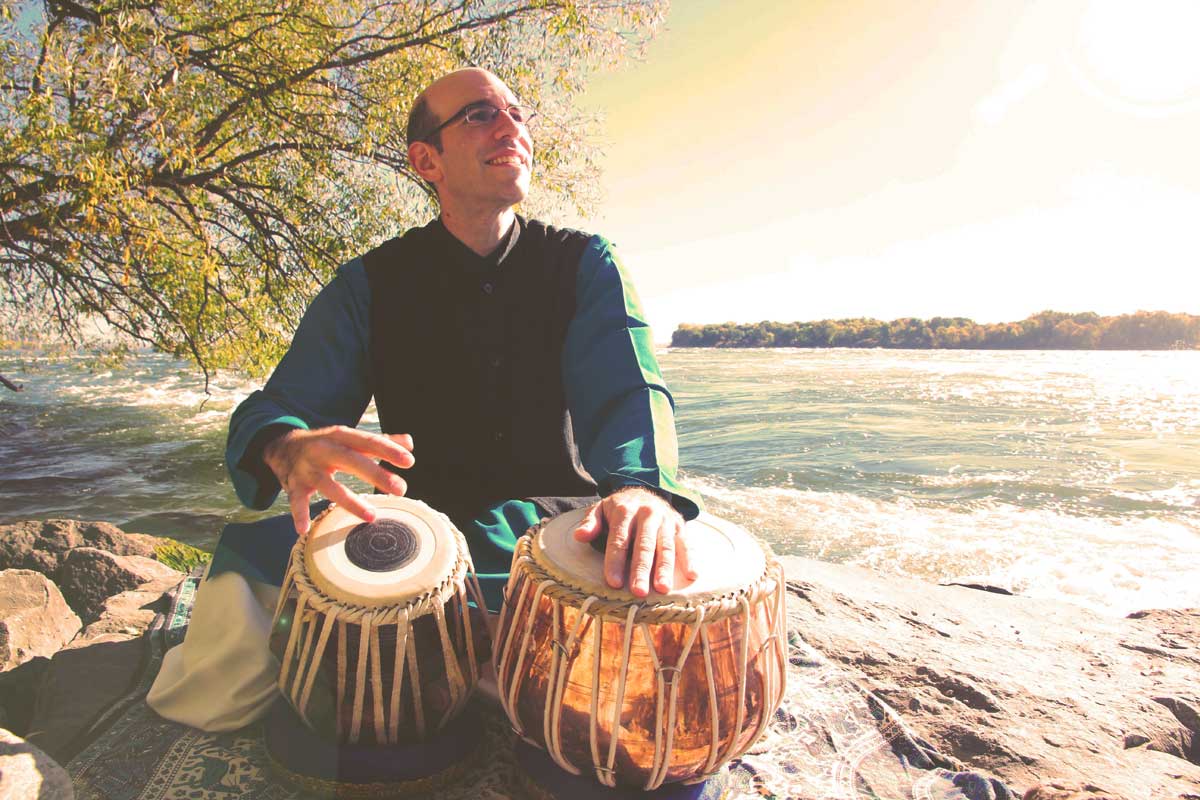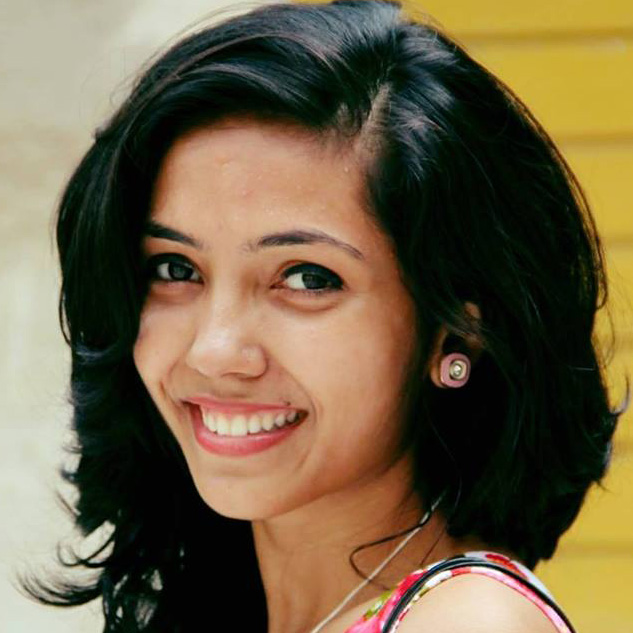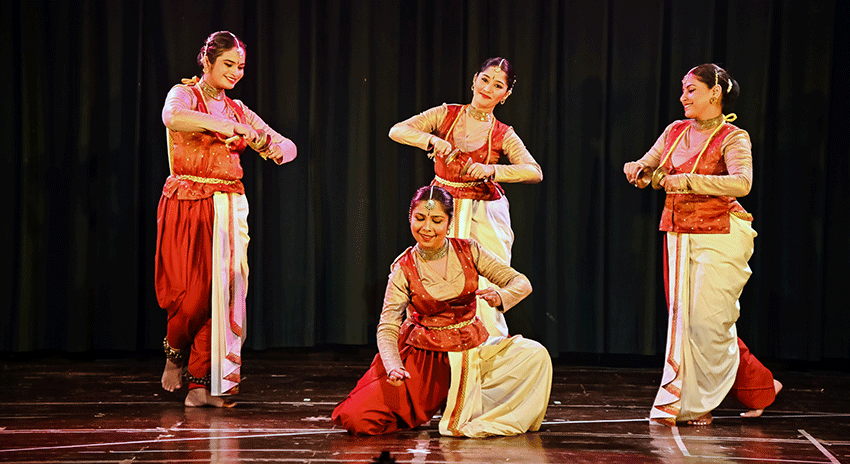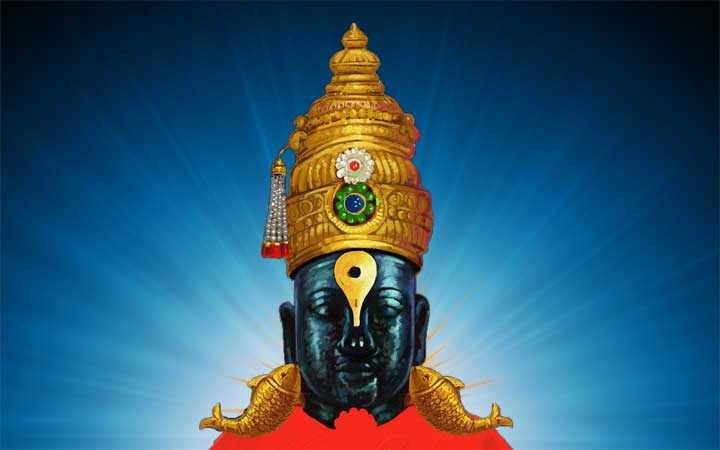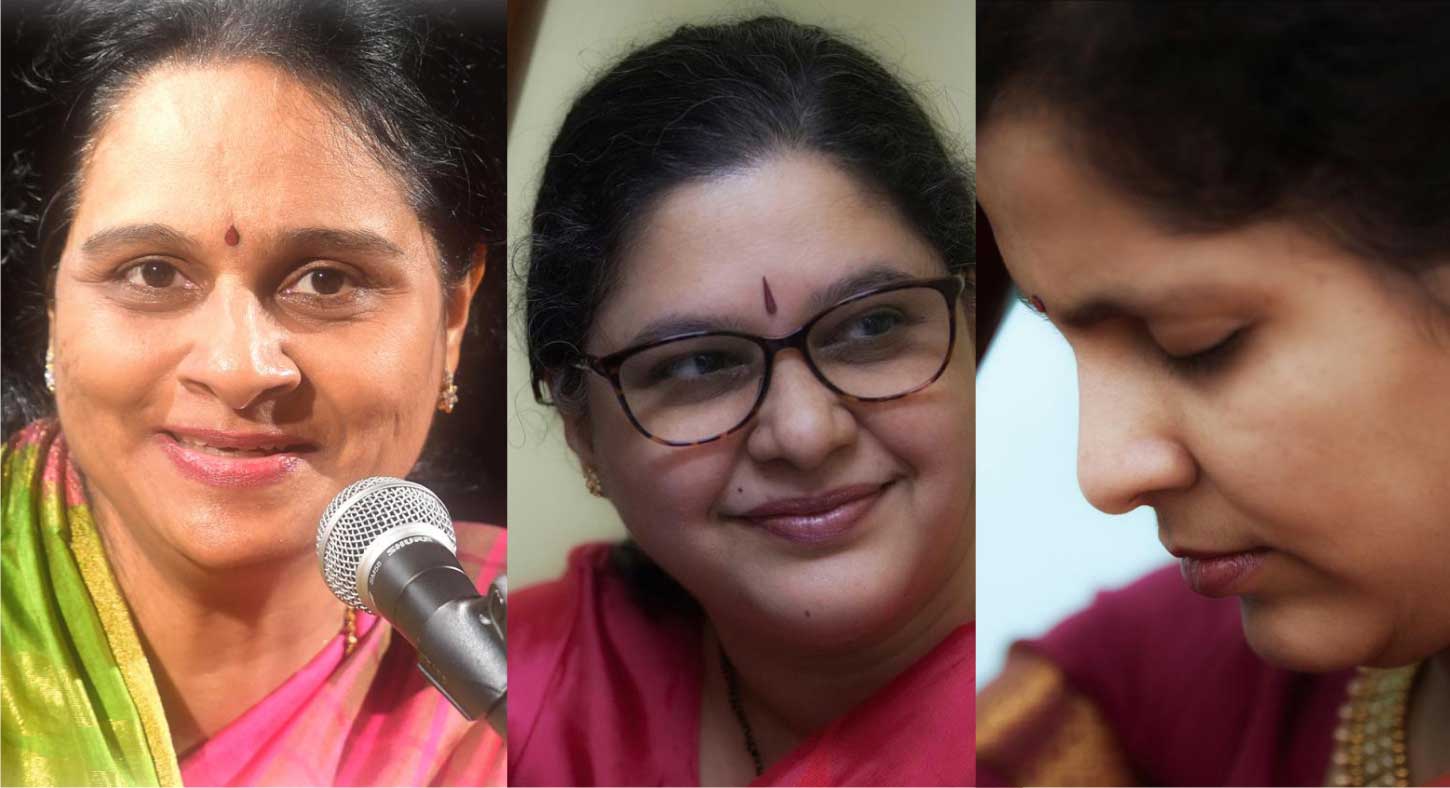By breaking the notion about the death of classical art in his new album ‘Rivers’ – Shawn Mativetsky, one of the most dynamic performers of Indian Tabla in the world says
“I disagree with those who believe that Indian classical music is dying, In fact, the future of the classical arts is in good hands.”
Mativetsky, who is a pioneer in bridging the worlds of Western and Indian classical music, is both performer and educator. With more than two decades of experience, he is active in the promotion of tabla and North Indian classical music through lectures, workshop and performances across the globe. This drummer turned practitioner of Indian classical music has recently launched his first Indian classical solo tabla album – ‘Rivers’, representing the blend of two cultures.
 The cover of the album is a montage of the ‘Saint Lawrence River,’ Montreal and ‘the Ganges,’ Varanasi, which resemble his life – where he lives and cherishes two different cultures through the means of art.
The cover of the album is a montage of the ‘Saint Lawrence River,’ Montreal and ‘the Ganges,’ Varanasi, which resemble his life – where he lives and cherishes two different cultures through the means of art.
In conversation with Classical Claps, Mativetsky from Montréal (Canada), shared his journey from a high school drummer boy to the master of the king of percussion instruments- Tabla.
1) Tell us about yourself? When did your musical journey begin?
It was at the age of seven when I started playing drum set as a serious hobby. I used to play western classical percussion and jazz drum set in my high school concerts. Coming to the tabla, I heard it for the first time on a recording and was awestruck by the unique timbre of the instrument. I instantly realized that this is what I needed to learn. I bought a pair of tabla and had no idea how to play it but my percussion instructor was kind enough to keep me motivated. My journey to learn tabla was kickstarted when he took me to a Hindustani music (Bansuri & tabla) concert in town where I met my first teacher from whom I learned tabla.
Later on, I studied with Bob Becker, who is a senior disciple of Guruji Pandit Sharda Sahai ji. He always suggested that I should meet Guruji as soon as I can, to study under him. After five years under Bob, I was finally able to travel and study with him. Needless to say that I was amazed by not only his virtuosity and sense of music, but also his personality and teaching style, being extremely kind and generous at the same time. After an intense study for two weeks under him, I asked him if he would take me as his disciple one day. He heartily replied, “Sure!” and a few months later, I was traveling to London, for the Ganda-bandh. For the following years, until his unfortunate passing in November 2011, I traveled to study with him on average three times per year, for extended periods.
2) Why Tabla? Why not any other western instruments?
I do play and teach other percussion instruments, from the Western tradition and other traditions from around the world, but the tabla is definitely my main instrument. When I first started tabla, it was one percussion instrument amongst many. Even though the tabla quickly became my favourite instrument, there was no way that I could have known at the time that I could possibly have a career as a tabla player. Over time, the tabla really has taken over my life in so many ways. The tabla is truly at the center of all that I do.
Why tabla? First, it’s the sound, the richness of the tone, the depth of the bass. It’s a magical sound. There’s also the rhythmic complexity of Indian classical music; how could any drummer not fall in love with that? There is always something magical that happens onstage between the musicians, and with the audience. Each performance is fresh and unique, created in the spur of the moment, but yet rooted in the deep traditions of Hindustani music.
3) How has joining Indian classical music changed your life?
I really owe everything to Guruji and his teaching. Without tabla and Indian classical music, I would not be where I am now in my life. Of course, my Western music training helps as well, especially when performing in fusion and contemporary settings. But my Indian classical training has definitely had a profound effect on me, and with respect to more than music. I’m sure it must have had some effect on my personality. I was not born in India, but I have definitely adopted numerous cultural practices into my being, though again, there must be many of these habits that I don’t even notice. I can say that I’m vegetarian, that I celebrate Guru Purnima, and you can definitely find Ganeshji and Saraswatiji all around my home and even in my office at the university. There is a great value to the oral tradition, in teaching by demonstration, and in teachers and students practicing and performing together.
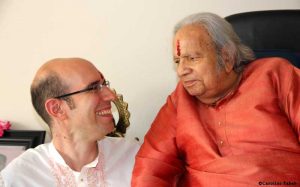
Through the tabla and Indian classical music, I have the great fortune of collaborating with so many amazing musicians. I get to travel the world to perform concerts, meeting many wonderful people along the way, and getting to experience so many amazing cultures and locales. I also have the chance to share this music with students and audiences, to share this rich tradition and to hopefully contribute to its appreciation around the world.
4) Over the years you have created a lot of masterpieces but what according to you is the best?
That’s very kind of you to say. There are so many great musicians out there, so many excellent tabla players. I am trying my best to play authentically, to preserve the tradition that Guruji so generously shared with me. At the same time, I want to make my own personal contribution in whatever small way I can, to express my personality and experiences. It’s very hard to choose a favourite, but I am definitely very proud of my most recent album, Rivers. I’ve played on numerous albums, and have released albums of contemporary tabla music, but Rivers is my first Indian classical tabla solo album. This album is really the culmination of all of my years of study and practice, and is my personal tribute to Guruji and the Benares Gharana of tabla playing.
5) What do you think about the next generation of tabla players?
I think it’s great that the tabla, and Indian classical music in general, is being taught and practiced all around the world nowadays, and at a very high level. People often make negative statements about the Indian classical arts dying out, but I think it is the opposite – the classical arts are alive and well, and spreading around the world like never before. The future is in good hands.
However, Guru-Shishya-Parampara is definitely changing, as are the ‘Gharanas’. More and more, we see musicians studying with more than one teacher, blending styles. I think that it’s essential to learn one style really well, to go really deep, to have a strong foundation. There is so much to learn in one gharana alone, and I will never master all that there is to learn in the Banaras Gharana. So, I prefer to focus my attention there, and to go as deep as I possibly can. Of course, any good tabla player will know compositions from all the gharanas, and that is important as well. Also, the relationship between Guru and Shishya is a lifelong relationship, and a very personal one. And, even though Guruji has passed away, I will be practicing what he taught me for the rest of my life. His teaching continues…
The technical virtuosity is just astounding. But somehow, many of these performances don’t touch me. This is the experience of time, of age. Maybe people are trying too hard to innovate, or to stick out from the crowd. Though there are so many excellent musicians nowadays, my favourite performances to listen to remain the great masters of the past. But we also need to keep in mind that many of the young players of today will also be known as great masters in time. With more life experience, the music gets deeper, more profound; less about technical virtuosity and more about the art and the heart.
6) Have you ever been to India? When are you planning your next visit and what will be the purpose?
Yes, absolutely. My visits have of course been mainly focused around Varanasi, though I have also visited Delhi, Agra, Mumbai and Pondicherry. I realize that there is still so much of India to see. However, It’s hard to say exactly when my next trip will be, but hopefully soon!



